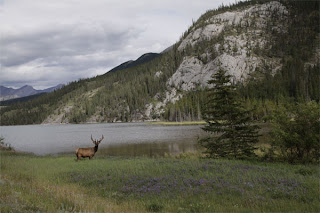(Photos:
Yuko Kootnikoff)
"Hakuna matata,” says Freddy, our guide, reminding us once again that there’s “no problem.”
It’s 4am and nearly 6km above sea level, where we are clinging to Mount Kilimanjaro, the “roof of Africa”, like castaways from
The Lion King.
“Iko Matata,” I reply. “There is a problem.”
(Photos:
Yuko Kootnikoff)
An icy wind is slicing through my scarf, raking my face like a bag of thorns and I’m pushing on my wife’s butt to prevent her from passing out. We’ve been going for close to six hours through the frozen dark. In a few more hours the sun will finally peek over the horizon. OK, we were warned, and we accepted the small print as we signed off on this “helliday” to climb “Kili”. Yuko was a bit apprehensive at first but finally agreed. Now she’s cursing like a pirate.
(Photos:
Yuko Kootnikoff)
There’s only a few hundred more metres to go before the summit, but it’s this last bit that is a killer. It’s never easy to predict how a climber’s body will react once above 5,000 metres. For most it means shallow breathing, heavy limbs and frequent stops. Water is essential. So are energy bars. For others, it means giving up, turning around and going home. Then there are the unlucky few who don’t make it out alive.
(Photos:
Yuko Kootnikoff)
Mount Kilimanjaro rises from the Serengeti Plain, 300km south of the equator, in the northeast of Tanzania and on the border with Kenya. I decided to do the climb a few summers ago for my 40th birthday. Kilimanjaro is actually the name of the national park that makes up three volcanic cones – Kibo, Mawenzi and Shira. Kibo’s Uhuru Peak is the highest point and it’s the goal most climbers try to reach. Most people do the whole trip – up and down – in four nights on the popular “Coca-Cola” route known as Marangu. We’re taking five nights – four up, one down – on the Rongai route, starting from the Kenyan side. It’s supposedly more scenic and less crowded.
(Photos:
Yuko Kootnikoff)
Freddy has been doing this for seven years. He’s 32 but looks 42 and barely makes enough to support his wife and three children. In the evenings he drinks “gongo juice”, Tanzanian moonshine, to relax. We turn in at about 8pm and wake at 2am to begin the final ascent. We have been told it’s easier to climb at night because the glacial scree is usually frozen, making it better for traction.
(Photos:
Yuko Kootnikoff)
In Kafka’s short story,
In the Penal Colony, a “traveller” is invited to an execution and agrees to attend out of politeness. This is how I’m beginning to feel, but it’s my own execution and I’ve willingly consented to die for fear of causing Freddy any offense. Morning comes and the sun is as clear and bright as a spotlight in a sky full of mirrors. The snow beneath our feet is like crushed glass. We’re getting closer. The blue ice of the glacier is in sight. I’m moving automatically and feel elated and exhausted.
(Photos:
Yuko Kootnikoff)
"There it is,” says Freddy.
It must be no more than 30 metres ahead, the first summit – Stella Point (5,756 metres), but it’s still an hour to Uhuru, the peak. My legs feel like they are being sucked into the ground, as if I’m walking across a glass surface with suction cups attached to my feet. I’m feeling dizzy, too, my mind is reeling back and forth. After a brief rest we follow Freddy and can see our goal, Uhuru, above us. Snow is everywhere, but there’s an easy path to follow.
(Photos:
Yuko Kootnikoff)
I feel invisible, like I’m transparent and weightless, as though something has given way and let me go. We finally reach the peak and the wooden marker announcing:
“Congratulations! You are now at Uhuru Peak, Tanzania, 5,895 metres, Africa’s Highest Point.”
Even with sunglasses the bright sunlight stings. At this first summit people are embracing, dropping to their knees. It all begins to make some sense now that it’s over. Kili looks down on the Olduvai Gorge, the cradle of humanity, the plain where our ancestor Homo habilis was born.
(Photos:
Yuko Kootnikoff)
The world is convinced it can maintain its voracious lifestyle while at the same time reducing its so-called “carbon footprint,” but the snow beneath our feet is literally melting away. We’ve got one foot in the cradle, the other in the grave. I don’t know exactly what the future holds, but I do know this glorious moment is enough to sustain Yuko and I for many years to come.
(Photos:
Yuko Kootnikoff)
Below is a video of our climb with Judee Sill’s “Crayon Angel” and the Fleet Foxes’ “Oliver James.”













































